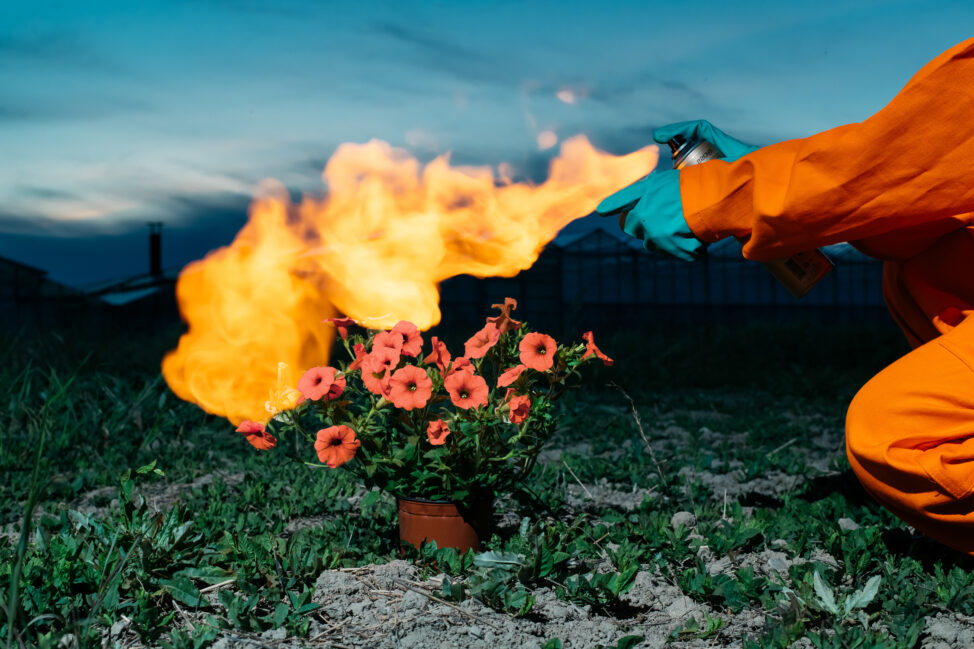Klaus Pichler
AT
-

The Petunia Carnage - 2022 - Photographic series [Detail]
According to ChatGPT, “Klaus Pichler is a photographer from Vienna, Austria, known for his conceptual photo series that address environmental and cultural issues. His work often blends irony with a critical perspective, addressing topics such as consumerism, waste, and the impact of human behavior on the environment. Pichler’s style is characterized by a strong visual storytelling approach and his ability to turn ordinary, often overlooked subjects into striking images that spark conversations about important issues. He uses a variety of techniques, including macro photography, still life, and photojournalism, to create images that are characterized by a rich attention to detail, composition, and color“.
The Petunia Carnage, 2022
When plant scientist Teemu Teeri went out of Helsinki Railway Station in May 2015, he noticed some vivid orange petunias in a planter. He was surprised since petunias don‘t come in orange colors naturally, and he took a few stems for testing in his lab. This chance encounter was the starting point of a case which was later called the ‚petunia crisis‘ and ultimately led to the destruction of all orange petunia variants worldwide.
The book ‚The Petunia Carnage‘ is based on the true story of the orange petunias, following the consequences of Teemu Teeri‘s discovery, when DNA tests revealed that the orange petunias were transgenic. The book goes back to the origins of the orange petunias at a controversial 1990‘s landmark experiment at Max Planck Institute in Cologne, followed by their mysterious ‚escape from the lab‘. Finally, it explains why the orange petunias were regarded as ‚illegal‘ after they had been bred and sold without permit for more than 25 years, leading to their worldwide mass destruction in 2017.
The story of the orange petunias is more than a scientific anecdote – it is rather a parable of what can happen when scientific interest, commercial marketing logic, socio-political values, public discourse and unexpected coincidences collide.